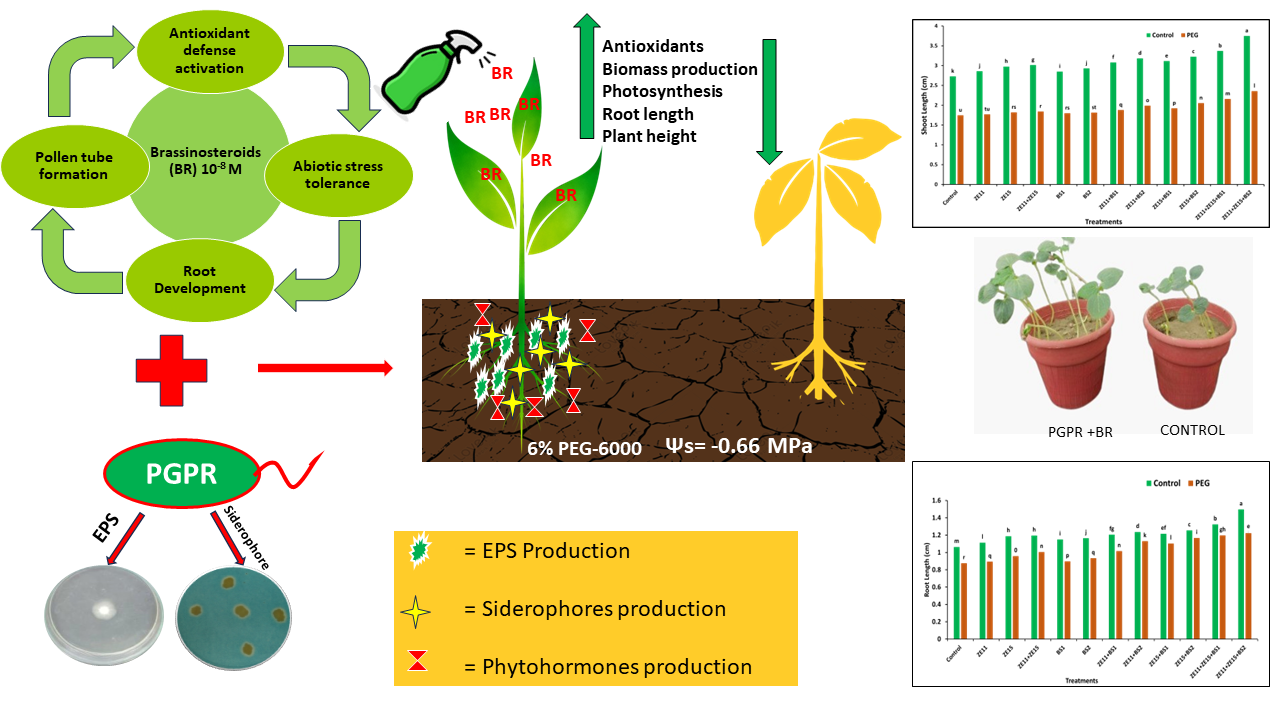
The study addresses the critical issue of water scarcity in agriculture, which causes significant losses by disrupting plant-water connections and increasing oxidative damage to biological components. In this study, we evaluated the synergistic potential of pre-isolated and identified exopolysaccharide-producing strains (ZE15 and ZE11) in combination with the drought-alleviating hormone Brassinosteroids (BR) to boost okra development under PEG-6000-induced drought stress. The experiment was carried out in a controlled environment at the Soil Microbiology and Biotechnology Laboratory. It used a completely randomized design with factorial arrangements and three replications. Individual rhizobacterial strains were evaluated and also used in a consortium (ZE15+ZE11) at two different Brassinosteroids (BR) concentrations (10-4 M and 10-8 M). The results showed that the consortium of (ZE15+ZE11) with foliar spray of BR (10-8 M) greatly increased okra production. Under both control and drought stress conditions, shoot length (37 and 34%), root length (41 and 40%), root surface area (32, 34%), and root volume (35 and 33%) improved significantly compared to the control group. Furthermore, this treatment demonstrated the most promising results in alleviating drought-induced oxidative damage by improving antioxidant defense mechanisms. Key enzyme activities, such as MDA (30 and 31%), GR (32 and 30%), SOD (36 and 37%), and CAT (31 and 34%), rose significantly under both control and drought stress conditions when compared to the control. To summarize, the use of drought-tolerant bacteria in concert with plant growth hormone provides a synergistic approach to mitigating the negative impacts of drought, resulting in considerable gains in okra growth and antioxidant defenses. This technique shows promise as a way to increase agricultural productivity in arid and semi-arid areas.
Total file downloads: 34